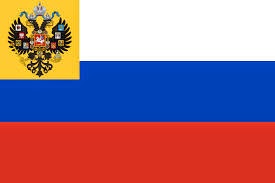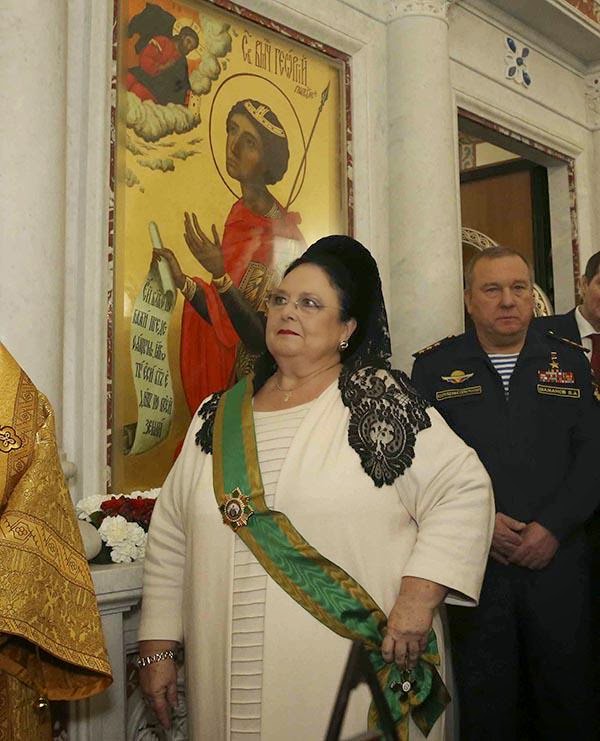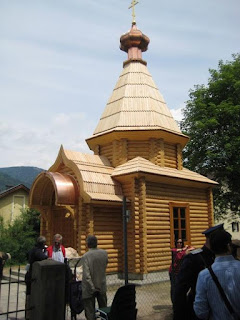The Boris Yeltsin Presidential Library in St. Petersburg have received a unique collection of documents from the Tobolsk State Archives. The 239 declassified documents dating 1914-1916 show the disorder in the Secret Service and other departments of the intelligence service of the time. The documents also contain valuable information of the secret surveillance of Rasputin, which began in 1915. The materials reflect a dramatic financial condition and a poor administration of the police, despite the fact that Rasputin, by contrast, felt confident and had sufficient means.
Most of the documents until recently were classified as "secret," "top secret," "personal," etc. Letters are in handwritten and printed form, some with pencil and ink marks.
"Correspondence with the Police Department, the Tobolsk provincial gendarmerie, district police officers about the organization of agent service" shows that in the difficult time of the World War I secret agents were dismissed due to the under funding, their salaries were reduced, they were offered to serve on a temporary basis. Confirmation of these facts we find in the presented documents. For example, a letter from the head of Tobolsk provincial gendarmerie Vladimir Dobrodeev addressed to his assistant in the Tyumen and other counties, captain Kalmykov of March 7, 1915: "For the salary of secret agents... we are given only 200 rubles per month... In addition, the Police Department offers to spend money with proper frugality, avoiding cost overruns." The answer of captain Kalmikov was immediate: "Of all the agents in my service I find it necessary to keep the "Skilled" and the "Fast" in Tyumen and the "Soldier" in Turinsk. As to the others, they can be either dismissed or demoted."
The correspondence also touched upon the reduction of agents’ salaries: "...reduce the salary of everyone, as much as you acknowledge it possible. When declaring them all of it do not inform them about the real reason for their dismissal or reduction of their salaries, as otherwise, out of selfish motives, they may give you a fictional information, which in no case can be tolerated."
After that the chief Dobrodeev raises the question not only of the value of staff, but also of the reliability of the agents as a whole: "Are your agents reliable? Instruct them to observe complete secrecy, keeping in mind that in some critical cases it is better to step away in a timely manner in order not to prang both the agents and the whole operation..."
In the summer of 1915, by order of the Minister of Internal Affairs of the suite of His Majesty, Major-General Vladimir Dzhunkovsky, there was established secret surveillance of Grigori Rasputin. Under the guise of guards two secret agents were assigned to him, who regularly reported to St. Petersburg Police Department about all travels, visits, and also provided the complete information about the visitors to Rasputin.
The correspondence makes it clear that the secret service was not up to surveillance of Grigori Rasputin, so they repeatedly suffered failures in their work. For example, the head of Tobolsk provincial gendarmerie writes to captain Kalmykov: "We need to find out, for what purpose Rudolf Berg came to Rasputin from Perm." Then he received a response from the agents: "Since Rudolf Berg had stayed only a few hours, it was not possible to find out or what purpose he came to Pokrovskoe to see Rasputin." The next episode is related to the failure of the agents to provide information.
August 25, 1915 Vladimir Dobrodeev writes to captain Kalmykov: "You have been ordered to monitor all activities of Grigory Rasputin and to inform me of everything... I did not receive any report about the outrages that Rasputin had made on the steamer called "Tovar-par." Yet, according to the chief of the province the actual state councilor Stankevich, whom I talked to today, the Tyumen county district police officer had carried out an investigation of this case." The agents reported: "On the boat Rasputin was drunk heavily, behaved outrageously and offered some books, but I did not pay attention to the content..."
Heads of the secret service feared of getting imaginary or incorrect information from their agents, whereby there were extraordinary occurrences. For example, the head of Tobolsk provincial gendarmerie was angered by the obscurity of one of the telegrams received from the agents. It did not indicate the date of Rasputin’s departure for Petrograd. The chief wrote a threatening letter: "From this I conclude that the sergeant Ivan Ivanov, who has been serving as a sergeant for ten years, fulfills his official duties not carefully enough...
Such negligence caused unnecessary correspondence, the report was somewhat late, almost daily, and quite involuntarily 2 rubles 42 kopecks were spent for sending unnecessary telegrams...., causing damage to the treasury." But it soon became clear that the order to collect a penalty and make a reprimand to sergeant Ivanov was unfair, he was innocent of what had happened: the figure was mistakenly omitted by a functionary on duty of the Tobolsk postal and telegraph office, while copying a telegram from the tape. Then the chief of the Tobolsk provincial gendarmerie recognized the injunction as invalidated, and ordered to inform the chief of the office "Dear G. Yerofeyev" about it "in a cautious manner."
While the police investigated the case of the figure missing from a cryptogram and spent breech time for conversation, fighting for a questionable economy, Rasputin traveled by steamers, and finally went away by train in a 1st Class wagon to St. Petersburg.
At the same time it appears that the decrease in salary, reduction of staff, checking the usefulness of the information provided due to mistrust, search for various "clues" to fight with Grigory Rasputin in the background of the events of World War I led to a serious failure. July 22, 1915 it became known of an important and serious neglect of the secret service: "In the kerosene depots in Tyumen on the Tura River there is a wireless telegraph, by which the local Germans and the prisoners spread the information from the theater of war through Saratov," that "the company Br. Nobel replaced the Russian, who served there before by the Germans, that the spread of telegrams is done by a German newspaperman."
Most of the documents until recently were classified as "secret," "top secret," "personal," etc. Letters are in handwritten and printed form, some with pencil and ink marks.
"Correspondence with the Police Department, the Tobolsk provincial gendarmerie, district police officers about the organization of agent service" shows that in the difficult time of the World War I secret agents were dismissed due to the under funding, their salaries were reduced, they were offered to serve on a temporary basis. Confirmation of these facts we find in the presented documents. For example, a letter from the head of Tobolsk provincial gendarmerie Vladimir Dobrodeev addressed to his assistant in the Tyumen and other counties, captain Kalmykov of March 7, 1915: "For the salary of secret agents... we are given only 200 rubles per month... In addition, the Police Department offers to spend money with proper frugality, avoiding cost overruns." The answer of captain Kalmikov was immediate: "Of all the agents in my service I find it necessary to keep the "Skilled" and the "Fast" in Tyumen and the "Soldier" in Turinsk. As to the others, they can be either dismissed or demoted."
The correspondence also touched upon the reduction of agents’ salaries: "...reduce the salary of everyone, as much as you acknowledge it possible. When declaring them all of it do not inform them about the real reason for their dismissal or reduction of their salaries, as otherwise, out of selfish motives, they may give you a fictional information, which in no case can be tolerated."
After that the chief Dobrodeev raises the question not only of the value of staff, but also of the reliability of the agents as a whole: "Are your agents reliable? Instruct them to observe complete secrecy, keeping in mind that in some critical cases it is better to step away in a timely manner in order not to prang both the agents and the whole operation..."
In the summer of 1915, by order of the Minister of Internal Affairs of the suite of His Majesty, Major-General Vladimir Dzhunkovsky, there was established secret surveillance of Grigori Rasputin. Under the guise of guards two secret agents were assigned to him, who regularly reported to St. Petersburg Police Department about all travels, visits, and also provided the complete information about the visitors to Rasputin.
The correspondence makes it clear that the secret service was not up to surveillance of Grigori Rasputin, so they repeatedly suffered failures in their work. For example, the head of Tobolsk provincial gendarmerie writes to captain Kalmykov: "We need to find out, for what purpose Rudolf Berg came to Rasputin from Perm." Then he received a response from the agents: "Since Rudolf Berg had stayed only a few hours, it was not possible to find out or what purpose he came to Pokrovskoe to see Rasputin." The next episode is related to the failure of the agents to provide information.
August 25, 1915 Vladimir Dobrodeev writes to captain Kalmykov: "You have been ordered to monitor all activities of Grigory Rasputin and to inform me of everything... I did not receive any report about the outrages that Rasputin had made on the steamer called "Tovar-par." Yet, according to the chief of the province the actual state councilor Stankevich, whom I talked to today, the Tyumen county district police officer had carried out an investigation of this case." The agents reported: "On the boat Rasputin was drunk heavily, behaved outrageously and offered some books, but I did not pay attention to the content..."
Heads of the secret service feared of getting imaginary or incorrect information from their agents, whereby there were extraordinary occurrences. For example, the head of Tobolsk provincial gendarmerie was angered by the obscurity of one of the telegrams received from the agents. It did not indicate the date of Rasputin’s departure for Petrograd. The chief wrote a threatening letter: "From this I conclude that the sergeant Ivan Ivanov, who has been serving as a sergeant for ten years, fulfills his official duties not carefully enough...
Such negligence caused unnecessary correspondence, the report was somewhat late, almost daily, and quite involuntarily 2 rubles 42 kopecks were spent for sending unnecessary telegrams...., causing damage to the treasury." But it soon became clear that the order to collect a penalty and make a reprimand to sergeant Ivanov was unfair, he was innocent of what had happened: the figure was mistakenly omitted by a functionary on duty of the Tobolsk postal and telegraph office, while copying a telegram from the tape. Then the chief of the Tobolsk provincial gendarmerie recognized the injunction as invalidated, and ordered to inform the chief of the office "Dear G. Yerofeyev" about it "in a cautious manner."
While the police investigated the case of the figure missing from a cryptogram and spent breech time for conversation, fighting for a questionable economy, Rasputin traveled by steamers, and finally went away by train in a 1st Class wagon to St. Petersburg.
At the same time it appears that the decrease in salary, reduction of staff, checking the usefulness of the information provided due to mistrust, search for various "clues" to fight with Grigory Rasputin in the background of the events of World War I led to a serious failure. July 22, 1915 it became known of an important and serious neglect of the secret service: "In the kerosene depots in Tyumen on the Tura River there is a wireless telegraph, by which the local Germans and the prisoners spread the information from the theater of war through Saratov," that "the company Br. Nobel replaced the Russian, who served there before by the Germans, that the spread of telegrams is done by a German newspaperman."















































